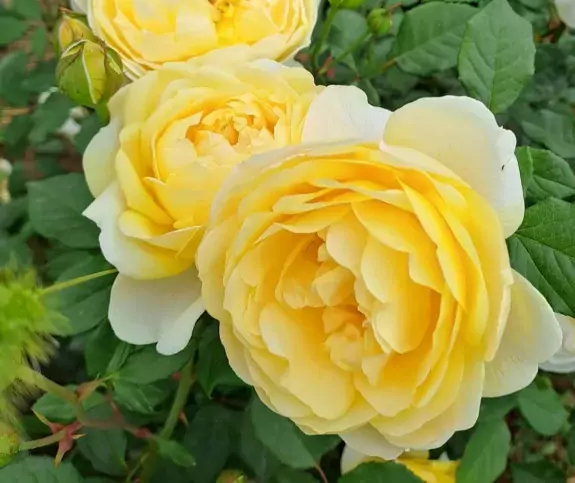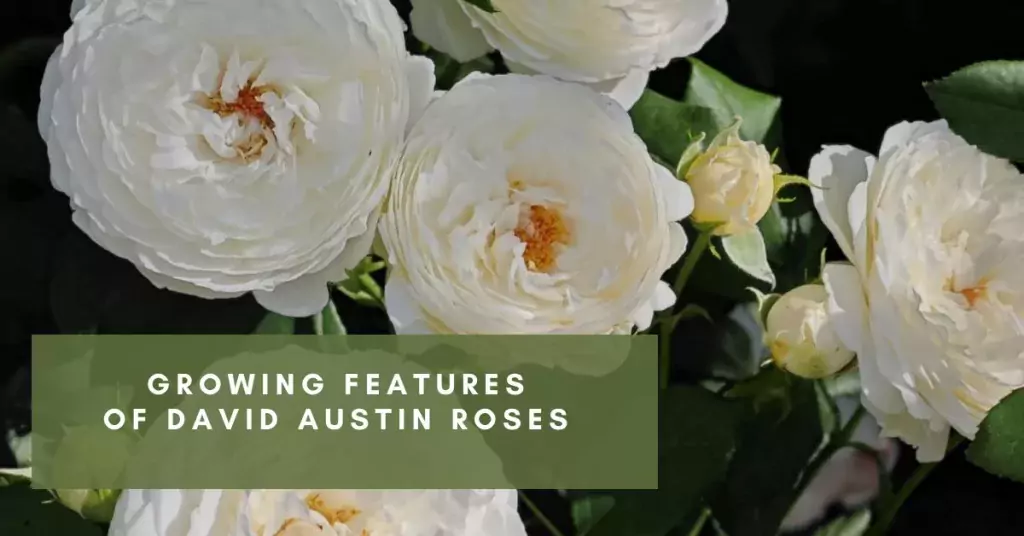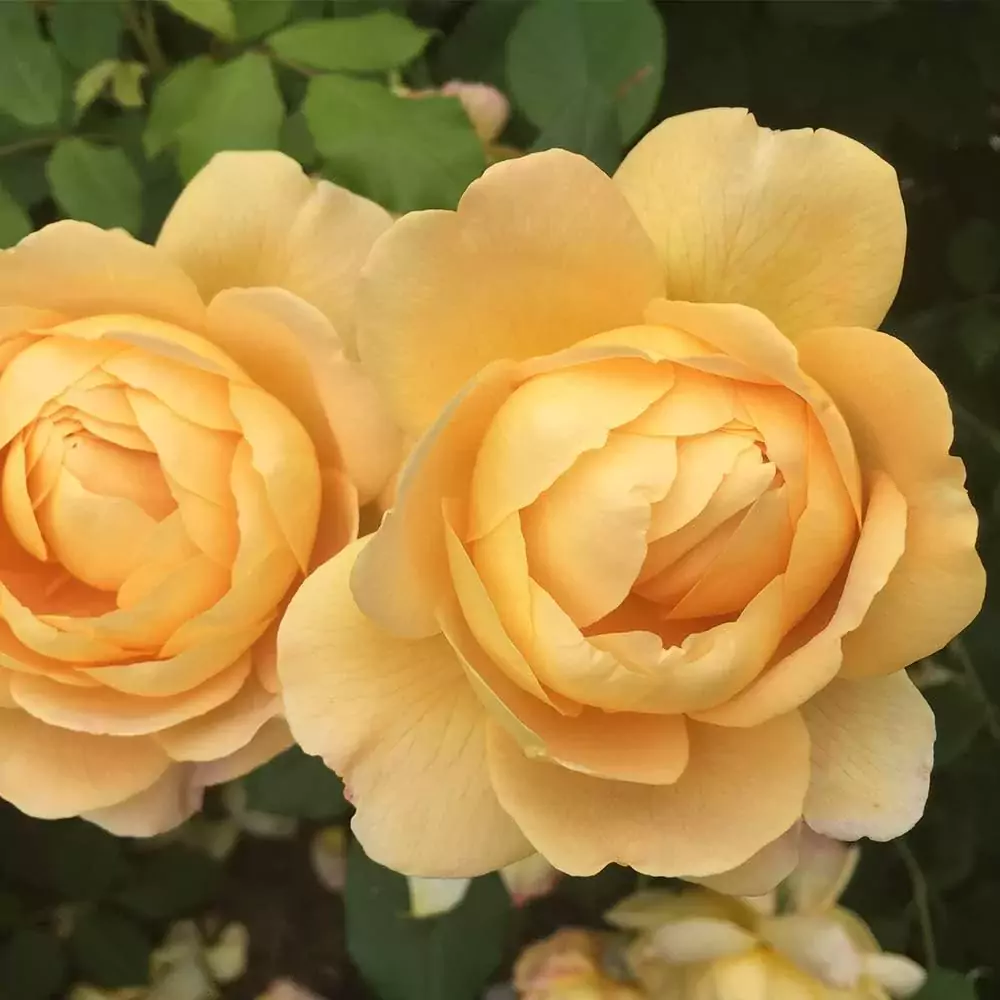David Austin roses, renowned for their timeless elegance and exquisite charm, have become a symbol of refined beauty in gardens around the world. Named after the renowned English rose breeder David C. H. Austin, these roses represent a harmonious blend of Old Garden Roses’s charm and modern roses’ repeat-flowering ability. In this article, we will delve into the growing features of Austin roses, exploring what makes them unique and how to cultivate these enchanting blooms.
What are David Austin's English Roses?
David Austin English Roses, often referred to simply as “David Austin roses,” are a class of roses developed by David C. H. Austin in the mid-20th century. Austin’s vision was to create roses that retained traditional roses’ classic beauty and fragrance while incorporating the desirable characteristics of modern roses, such as repeat blooming and a diverse color palette. The result is a collection of roses that capture the essence of romance and nostalgia.
What is Special About David Austin Garden Roses?
The allure of David Austin roses lies in their unique combination of characteristics. These roses are celebrated for their captivating fragrance, lush petal formation, and the ability to bloom repeatedly throughout the growing season. Unlike some modern roses that may sacrifice scent for other features, David Austin roses offer a sensory experience that harks back to the timeless appeal of traditional rose varieties.
Dispelling Myths About Growing David Austin Roses
Are English Roses Hard to Grow?
One common misconception about David Austin roses is that they are challenging to grow. However, with the right care and attention, these roses can thrive in various garden settings. Like any plant, these roses benefit from suitable soil conditions, adequate water, and proper pruning. Understanding the specific needs of these roses can make the cultivation process more straightforward.
Are Austin Roses Disease Resistant?
A key consideration for any rose enthusiast is the plant’s susceptibility to diseases. In the case of Austin roses, they exhibit a good level of disease resistance, although no plant is entirely immune. Proper sanitation practices, such as cleaning pruning tools between uses and removing any diseased foliage promptly, contribute to maintaining the health of your English roses.
Are David Austin Roses High-Maintenance?
Contrary to the belief that elegant roses equate to high maintenance, David Austin roses are surprisingly manageable. While they benefit from regular care, including pruning and feeding, they do not demand an unreasonable amount of time and effort. The rewards of their exquisite blooms far outweigh the modest maintenance they require.
Stay tuned for the next section as we explore caring for these roses, including tips on pruning, planting, and maximizing their blooming potential.
How Do You Take Care of David Austin Roses?
Cultivating these English roses involves a combination of art and science. Proper care is essential to ensure these roses reach their full potential.
Can David Austin Roses Grow in Pots?
One of the many charms of David Austin roses is their adaptability. You can grow them in pots, making them an excellent choice for balconies, patios, or small gardens. Ensure the pot has good drainage, use quality soil, and provide regular watering. Container-grown roses can bring enchanting beauty to even the smallest outdoor spaces.
Do David Austin Roses Bloom All Summer?
The blooming season of these English roses extends beyond a brief period, delighting gardeners with a prolonged display of their exquisite flowers. While the exact blooming duration can vary depending on climate and care practices, these roses typically offer blooms throughout the summer, creating a continuous tapestry of color and fragrance.
When Do David Austin Garden Roses Bloom?
The timing of blooming for these English roses can vary based on the specific cultivar and local climate conditions. Generally, these roses bloom in late spring and continue through summer. Understanding the bloom cycle of your specific variety can help you plan and appreciate the evolving beauty of your rose garden.
Do David Austin Roses Need Full Sun?
David Austin roses thrive in full sun, requiring at least six hours of direct sunlight daily. While they can tolerate partial shade, optimal sunlight exposure enhances their flowering potential and overall health. When selecting a planting location, choose a spot with ample sunlight to ensure your roses flourish and produce abundant blooms.
Pruning and Planting Tips for David Austin Roses
How to Prune English garden roses
Pruning plays a crucial role in shaping the growth and promoting the health of David Austin roses. Perform pruning during the dormant season, typically in late winter or early spring. Remove dead or diseased wood, shape the plant to encourage airflow, and cut back old flowering stems to stimulate new growth. Pruning not only enhances the aesthetics of the rose bush but also contributes to its overall vigor.

How to Plant Austin garden roses
Planting David Austin roses requires careful consideration of soil, spacing, and planting depth. Choose a well-draining soil enriched with organic matter. When growing, ensure the bud union (the swollen area where the rose is grafted onto the rootstock) is at or slightly below the soil surface. Proper spacing between plants allows for good air circulation, reducing the risk of diseases.
How Long Do David Austin Roses Live?
Various factors, including care, climate, and the specific cultivar, influence David Austin roses’ lifespan. With proper attention and care, these roses can live for many years, consistently displaying beauty in your garden. Some well-maintained David Austin rose bushes have been known to thrive for two decades or more. Regular pruning, disease management, and suitable growing conditions contribute to their longevity.
How Do You Plant D. Austin Bare Root Roses?
Planting bare-root roses may seem daunting, but it’s a straightforward process with the right approach. Start by soaking the roots in water for a few hours before planting. Excavate a hole spacious enough to generously accommodate the rose’s roots without causing crowding. In the center of the hole, form a soil mound to provide reliable support for the graft union of the rose. Position the rose on the rise, spread the roots, and backfill with soil. Water thoroughly and mulch to retain moisture.
What are some of the cons of D. Austin roses?
While Austin roses are celebrated for their beauty and fragrance, like any plant, they have specific considerations and potential cons:
Short-Lived Blooms: While breathtaking, the exquisite blooms of these roses can be relatively short-lived. The petals are delicate and may lose their pristine appearance quickly. Consistently removing faded blossoms, a practice known as deadheading, proves crucial in fostering a continuous flowering cycle and preserving the visual allure of the rose bush.
Vigorous Growth: While some gardeners appreciate the robust growth of these English roses, others may find it challenging to control. Regular pruning and maintenance are necessary to manage their exuberant growth.
Many gardeners find the beauty and unique features of David Austin roses outweigh any potential drawbacks, and with thoughtful cultivation, they can thrive in various garden settings.
- Optimal Nutrition: Nourishing your roses is vital for their well-being. During the active growth season, use a well-balanced fertilizer specially designed for roses. Ensure the application of this fertilizer in spring as new growth emerges, and for a robust bloom, repeat the process in late spring or early summer.
- Hydration Harmony: While these English roses exhibit moderate drought tolerance, maintaining consistent watering is paramount, especially in dry spells. Focus on watering at the plant’s base to keep the foliage dry, minimizing the risk of diseases that thrive in damp conditions.
- Proactive Disease Defense: Despite their inherent disease resistance, implementing preventive measures enhances the health of your roses. Steer clear of overhead watering, swiftly remove and dispose of any diseased foliage, and ensure ample spacing for optimal air circulation around the plants.
- Mulching Magic: Elevate the well-being of your rose bush by generously applying organic mulch around its base. This not only retains moisture but also suppresses weeds and regulates soil temperature. The mulch contributes significantly to the overall vitality of the roses.
- Winter Shielding: In regions with colder climates, extend your care into the winter months. Provide a protective layer of mulch around the rose’s base, and if the situation demands, wrap the plant with burlap. This safeguards the rose from the harsh winter conditions, ensuring its resilience come spring.
Whether you have a spacious garden or a cozy balcony, the adaptability of David Austin roses makes them a splendid addition to any outdoor space, bringing a touch of romance and elegance that lasts for years.
As you embark on your journey with David Austin roses, remember that the joy of tending to these blooms goes beyond their visual appeal—it’s a celebration of nature’s artistry and the timeless allure of the rose garden. Happy gardening!

Get Your Free Lunar Gardener's Calendar 2024!
Join the Lunar Gardening Revolution! Subscribe now to receive our exclusive Free Lunar Gardener’s Calendar for 2024. Harness the power of the moon to optimize your planting, nurturing, and harvesting.








